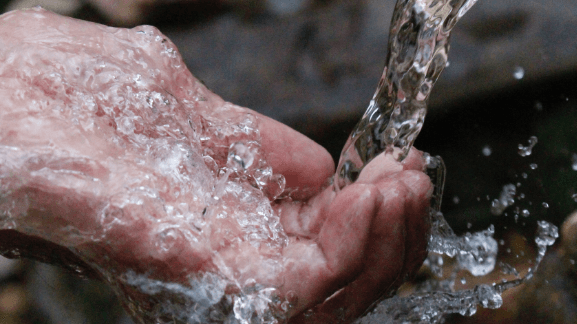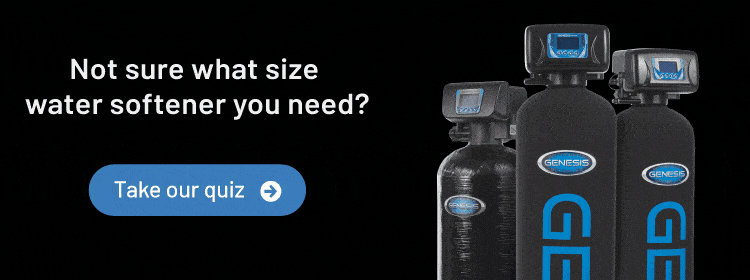Whole House Filtration vs Water Softener | Discount Water Softeners
Posted by Discount Water Softeners on Aug 16th 2024
Types of Water Filtration Systems
A water softener is a whole house filtration system that removes the minerals causing hard water and scaling. A whole house water filtration system can filter and remove numerous contaminants throughout an entire home. While water softeners are considered whole home filtration devices, water filtration systems include more than just water softeners. Softening systems are the best and most efficient solution for hard water.
The purpose of a water softener is to prevent the build-up of limescale in piping, and protect water-using appliances from premature replacement. This is achieved by removing the calcium and magnesium hardness ions through the process of ion exchange, with a salt-based water softening system. Water softeners are point of entry systems, meaning they connect to the main line and soften all the water in your home.
Water softening systems do filter water. However, what is removed are hardness minerals, and some forms of iron. Softeners are not designed to filter heavy metals, chlorine, fluoride, lead, and other chemicals or bacteria. If you are concerned about impurities like mercury, pesticides and other contaminants, a whole house water filtration system is the right choice.
Depending on the filtration system you choose, a wide variety of purification technologies may be used to treat contaminants in your water. Identifying the contaminants that you wish to remove is the first step in selecting the right filtration system. Excessive chlorine is often noticeable due to its smell, and hardness minerals are spotted by their characteristic staining on sinks and glasses. But many dangerous contaminants that may be present in your water are not nearly as easy to identify, as they can’t always be seen, smelled, or tasted.
What’s Coming From the Tap?

For a water softener or other whole house filtration system to work efficiently, it’s vital to know the mineral composition and concentrations of any contaminants lurking in your water. If your water is derived from a private water source, such as a well, you’ll need to have your water tested by a professional. If your tap water comes from a city supply, your water has already been tested for you. Every utility in the U.S. is required to provide an annual quality report listing all contaminants found in your city’s water during the previous year.
These reports, called CCRs, or Consumer Confidence Reports, provide information on your local drinking water quality. The reports may be mailed to you, or found online. Unlike public water systems, private wells are not regulated by the EPA (Environmental Protection Agency) so there is no requirement for an annual water quality report. This makes it imperative for homeowners with private wells to do their own testing each year. Water quality can, and does change; don’t be lulled into a false sense of security because your water quality may have been excellent in years past.
The U.S. Environmental Protection Agency sets safe drinking water standards for municipal water supplies. These standards limit the amounts of specific contaminants allowed in your water, to ensure that tap water is safe to drink for most people. The question is whether you trust that the water from your kitchen tap is clean enough for your family, based on the guidelines set by the EPA. Drinking city water doesn’t guarantee that it’s healthful water—just that it’s good enough, and won’t make you sick.
Unfortunately, just because your water has been cleaned and sanitized, doesn’t mean there isn’t a lot of junk in it you may not want your family to consume. Much of the tap water in the U.S. contains bacteria, lead, chlorine, prescription drugs, and hormones. Overall, your E.P.A. regulated tap water will be free of infectious microorganisms and safe enough to drink. If you’re uncomfortable with what you see on your CCR you may want to consider a whole house filtration system to eliminate other contaminants that can adversely affect your health.
Water Softener or Water Filter?
The improvements a water filtration system can make to your water quality are not limited to simply removing contaminants. It’s widely known that drinking plenty of water helps with the body’s ability to perform, but it also helps with skin hydration. With fewer harsh chemicals in the water you drink, your body processes water more efficiently and keeps it better hydrated. Aside from the health benefits of drinking filtered water, filtering shower water softens it and leaves your skin with more moisture than by using regular tap water.
Educating yourself about what’s in your water will help you find the appropriate method of removing what doesn’t belong. Water softeners and water filtration systems focus on different contaminant issues, so deciding on which one to use should depend on what’s in your water. If your household struggles with hard water as well as other impurities, the solution is a combination of both a water softening system, and a whole home water filtration system.
Your water conditions are specific to your home and the area you live in; the best water filtration system is one customized to filter and clean all the water running through your home. Removing toxins from your water makes it perform, taste, and smell better. Combining various water filtration solutions can lead to better water quality overall in your home. If you’ve decided to implement a whole house water filtration system, there’s really no downside. Improving your home’s water will benefit your appliances, your home, and the health of your family.
Do I Need a Water Softener and a Whole House Water Filter?
A water softener is a whole house filtration system that removes minerals that cause hard water. While water softeners are effective for hard water, a whole house filtration system may benefit you if you are concerned about eliminating heavy metals, chlorine, fluoride, lead, and other chemicals or bacteria.
In this blog, we will discuss whole house water filters and water softeners in greater detail. Discover what a whole house water filter is, how it operates, and its cost, plus valuable insights into water softeners. We'll help you decide which solution best fits your water filtration needs while also exploring some potential salt-free water softener alternatives.
What Is a Whole House Water Filter?
A whole house filtration system removes pollutants and contaminants from water, including bacteria, heavy metals, and chlorine by-products. It works by treating the water at the point of entry into a household, ensuring that the water throughout the household is treated. That way, all water sources, such as showers, kitchen sinks, refrigerators, and anything else connected to water, will be safe and contaminant-free.
How Does Whole House Filtration Work
So, how exactly does whole house filtration work? Firstly, any water that comes to your house immediately goes through a pre-filter, which removes larger impurities and contaminants, such as sediment. Next, the water undergoes thorough filtration to remove chlorine and volatile organic chemicals, improving air quality in your home once they evaporate. Thirdly, the water is run through activated carbon to remove contaminants like pesticides, copper, and herbicides. Finally, the water undergoes a polishing filtration process to eliminate any remaining sediment and organic particles, leaving you with sparkling clean and safe water throughout your home.
Whole House Water Filter Costs
A whole house water filter that will keep you and your family safe can cost from $1,000 to $2,300, plus the installation. However, using a water softener in combination with whole house filtration produces the cleanest, purest water, providing you with priceless peace of mind.
What’s a Water Softener?
Water softeners have become essential for many homeowners. They remove hard minerals such as calcium and magnesium from the water. The best water softener system installed in your home can prolong the lifespans of household appliances that use water, such as dishwashers, washing machines, and water heaters, and prevent harmful mineral buildup.
How Does a Water Softener Work?
Water softeners typically consist of two tanks: the brine tank, where salt is stored, and the media tank, where resin beads charged with sodium ions are housed. As water passes through the media tank, the resin beads attract and remove hard minerals like calcium and magnesium. When the resin reaches its capacity, it needs to be regenerated by cleaning it of hardness ions and recharging it with sodium ions from the brine tank. This regeneration process involves stages such as backwashing, brine cycle, rinse cycle, and fill cycle. Once complete, the water softening system can soften the water again.
Water Softener Costs
Installation costs for a water softener can range from 1800 to 13,000, but the cost may vary depending on the type of unit and the size of the home. Investing in a water softener is a fantastic way to ensure the highest water quality and save money that would otherwise be wasted on inefficient, hard water delivery.
What’s Better, Water Softener or Whole House Water Filter
The most important factor to consider when deciding between a water softener, whole house water filter, or both is the quality of your water and what it needs to be treated for. A water softener is great if you only want softer water, but a whole house water filter will be necessary if you need to remove other contaminants and bacteria.
Salt Free Water Softener Alternatives
Unfortunately, when a system claims to be a "salt-free water softener," it is not practical in softening your water and is not worth it. The Water Quality Association (WQA) defines soft water as water containing 1 grain per gallon of hardness or less, and none of the "salt-free water softeners" can reduce the hardness to 1 grain per gallon or less. Therefore, these systems are not water softeners and do not effectively soften the water.
FAQ
- What is better, a whole house filter or a water softener?
Both are excellent options to treat your water; however, based on your water quality and what it needs treatment for, will determine if a water softener or whole house filter is required.
- Does a whole house water filter reduce hardness?
While a whole house filter will remove chemicals and contaminants like pesticides, herbicides, chlorine, and biological organisms, a water softener is needed to remove hard water.
- Is it worth getting a whole house water filter?
Absolutely. With a whole house water filter, you're guaranteed the highest-quality water from all household sources.

